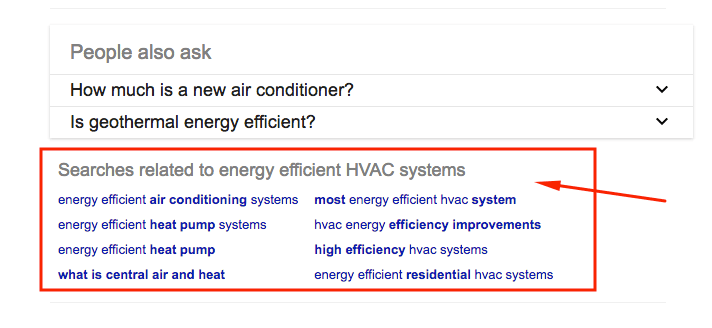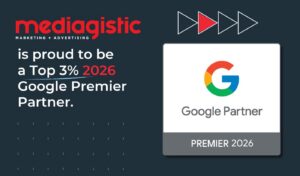
Why Topic Optimization is the New Face of SEO
For years, SEOs have optimized their websites to align with specific keyphrases using a technique called “keyword optimization.” But as time has passed, search algorithms have become more complex and search behavior has changed dramatically.
This has given rise to a dramatic shift in how the SEO community is talking about content creation. The latest buzzword is “topical authority,” and without question, it’s the new face of website optimization.
Panda is Now a Core Ranking Signal
At the beginning of the year, Google announced that it had made Panda part of its core algorithm, in addition to being the spam-fighting content filter it has been since February 2011. Industry observers had been suspecting this for some time, and it’s widely suspected that this has been the case since sometime in late 2015.
So what is Panda, and why should you care that it’s now a core ranking signal? Here’s how Google defined it in an official statement:
“Panda is an algorithm that’s applied to sites overall and has become one of our core ranking signals. It measures the quality of a site, which you can read more about in our guidelines. Panda allows Google to take quality into account and adjust ranking accordingly.”
In short, the quantity of your content officially has taken a backseat to quality. Your role in helping Google deliver relevant content at the top of the search results now goes well beyond generating thin, keyword-stuffed content.
You still need to be creating content, but it has to be the right content. This moves the focus away from individual keywords and toward creating topically relevant content that truly is valuable to searchers.
Keyword Optimization vs. Topic Optimization
Don’t get us wrong here: Keywords still matter. But how you prioritize keywords is what has changed. Instead, as Stoney deGeyter of Search Engine Land says, “search engines are now looking for authoritative content that is more topically optimized than keyword-optimized.”
Rather than focusing on a broad variety of keywords that you think search engines want to see, focus on topic areas that your customers want to see instead. What are the areas where you want to be considered a thought leader in the industry? Start there. Establish these core topics and then conduct your keyword research accordingly. The end result will be topic-focused content areas with supporting short- and long-tail keywords.
The Power of Long-Tail Keywords
Long-tail keywords are what you would assume based on the name – three- to four-word keyword phrases (as opposed to one- or two-word phrases). The more words you add, the more detailed your targeting will be. While it will narrow the number of exact matches, it will boost the probability that you rank higher for that topic while also attracting the ideal customers to your site.
For years now, long-tail keywords have taken an increasing role in generating page views. According to SEMRush, in 2014, these keywords constituted “70 percent of all search queries.”
Subsequently, content creators should cease to concentrate on creating content that only ranks for one high-value keyword. Instead, the focus should be on useful, substantive content that uses naturalistic language. By taking care to research all of the different terms associated with high-value queries, you be able to capture a much broader range of key terms.
Search Queries & the Concept of “Clustering”
Perhaps the most important takeaway from this new evolution of SEO is to understand that your customers aren’t all searching for your services the same way. The variations in search queries for the same basic topic are practically endless. Let’s look at energy efficient HVAC systems as an example:

Your customers could be searching for any one of the related topics shown above. And it’s important to note that all of these topics are long-tail. In order to compete in this topic area, then, content creators and SEOs will need to look very closely at all the relevant search queries and execute a strategy to capture as much of the traffic associated with them as possible.
This is where organic SEO has a slight advantage over paid search — it’s not exact match, so you can create relevant, useful content designed to target these keywords in clusters. Furthermore, this approach is even more powerful when it’s done in support of a paid search strategy that targets individual, high-value key terms.
Such an approach covers all your bases with a multi-faceted strategy that provides more opportunities to answer questions, win clicks, and ultimately, to create conversions.
Topic-Optimized Content for the Home Services Industry
Need help with content development and organic SEO strategy? The LeadBuilder® approach is as forward-thinking and responsive as it is progressive.
Using content topic optimization as part of our holistic approach to Internet marketing, we can create engaging, high-quality content for your website to target relevant clusters of key terms. This ultimately will help to increase your web presence and visibility, while augmenting and supporting the performance of paid search campaigns.
 Justin Littlejohn is a Senior Digital Strategist for Mediagistic. His past endeavors include web development and IT, e-Commerce management, entrepreneurial ventures, and search engine optimization. Connect with him on Linkedin.
Justin Littlejohn is a Senior Digital Strategist for Mediagistic. His past endeavors include web development and IT, e-Commerce management, entrepreneurial ventures, and search engine optimization. Connect with him on Linkedin.
You May Also Like

Mediagistic Earns 2026 Google Premier Partner Status, Ranking Among the Top 3% of Agencies Nationwide
February 24, 2026Mediagistic is proud to announce that we have once again earned Google Premier Partner status for 2026. This distinction places us among… Continue Reading Mediagistic Earns 2026 Google Premier Partner Status, Ranking Among the Top 3% of Agencies Nationwide…

EPIC 2026 Recap: What Getting 1% Better Means for HVAC Marketing in 2026
February 19, 2026The Main Event of HVAC delivered exactly what the industry needed. At EGIA’s EPIC 2026, contractors, distributors, and partners from across the… Continue Reading EPIC 2026 Recap: What Getting 1% Better Means for HVAC Marketing in 2026…

HVAC Marketing in 2026: Industry Data, Trends & Growth Benchmarks for Contractors [Infographic]
February 1, 2026HVAC is picking up again in 2026, but competition is getting tougher. Costs are rising, and more companies are fighting for the… Continue Reading HVAC Marketing in 2026: Industry Data, Trends & Growth Benchmarks for Contractors [Infographic]…